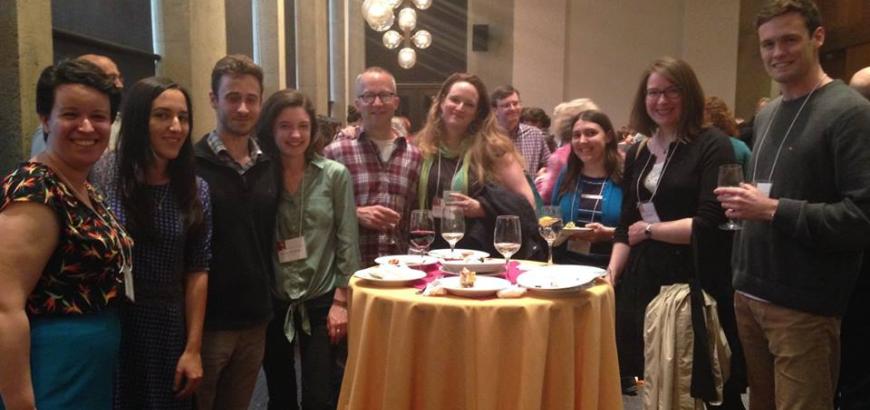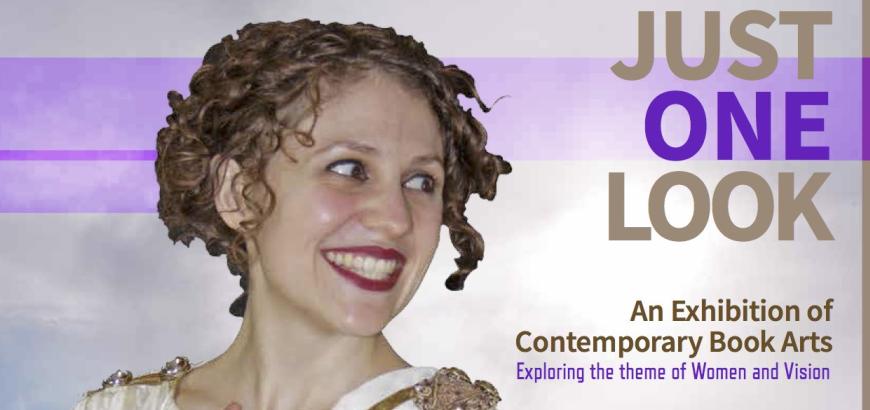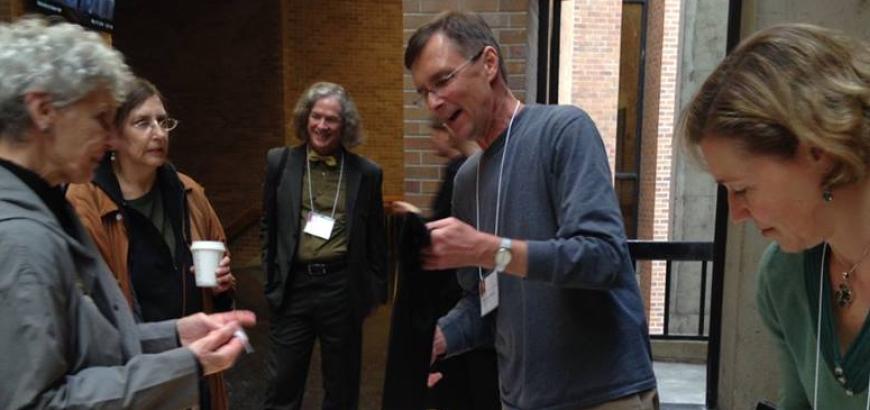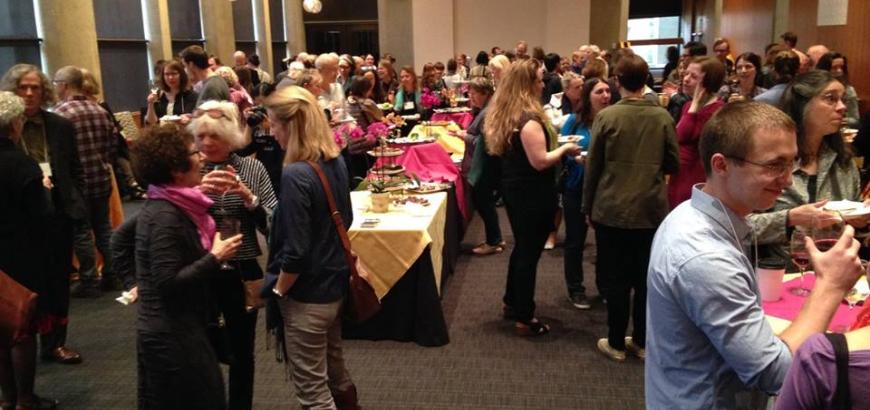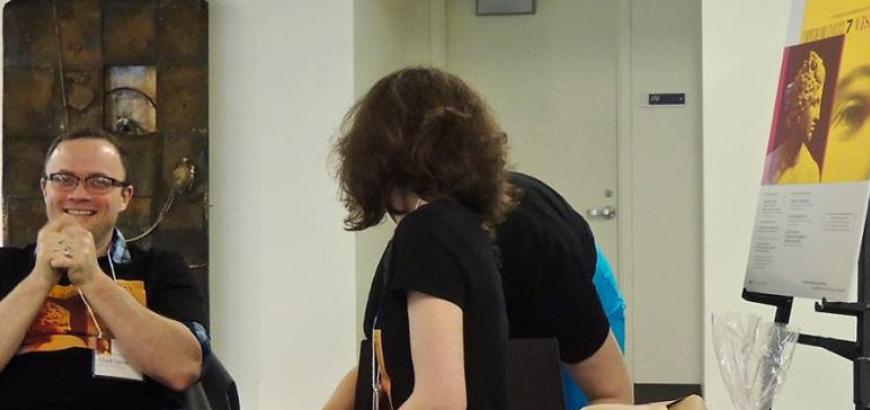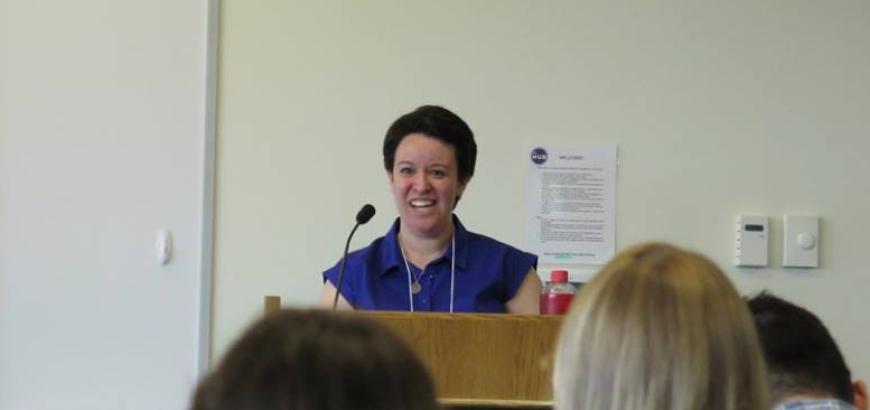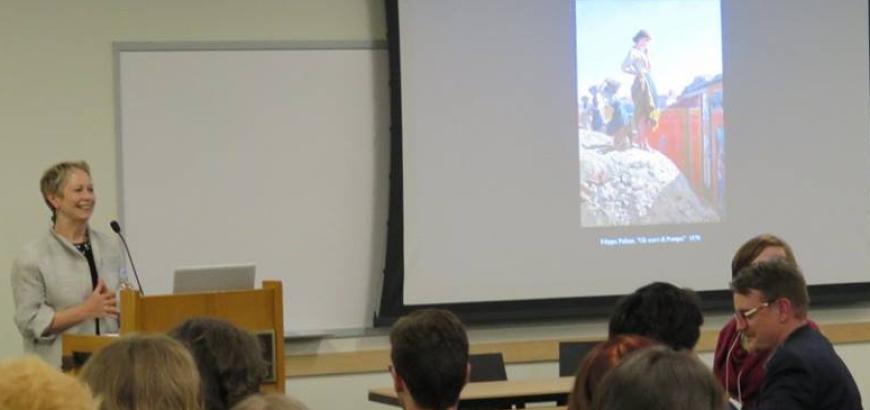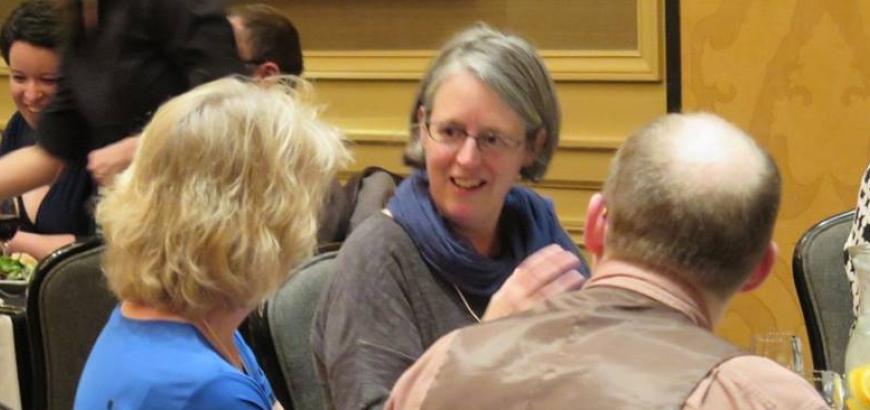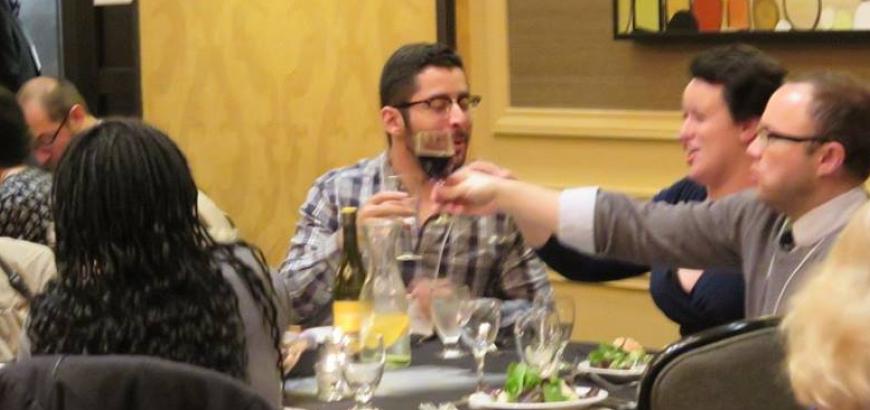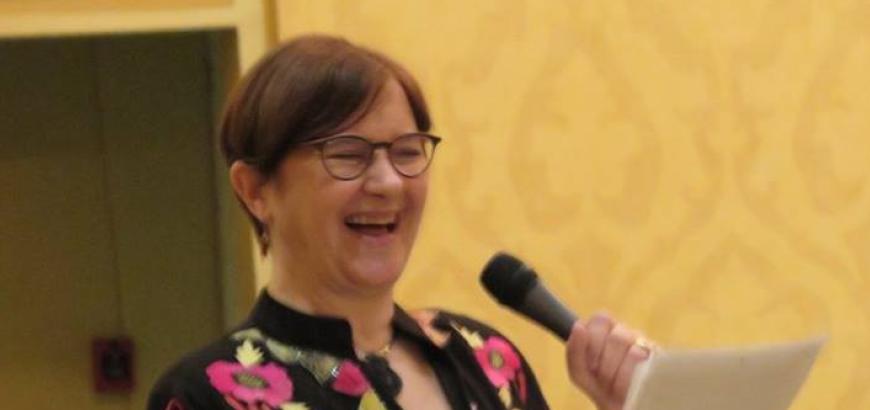Feminism and Classics is an international conference series exploring the multiple interconnections among the cultures of the ancient Mediterranean and the study of feminism, women and gender. It is held every four years at a different North American university. The seventh iteration, on the theme of Visions, was hosted this May 19-22 by the Department of Classics and Simpson Center for the Humanities at the University of Washington in Seattle. Comprising some 120 presentations over a four-day period, this was the largest Feminism and Classics yet, drawing 212 registrants from 107 institutions in 13 countries around the world.
Our conference opened with a festive reception followed by a keynote address by Alison Wylie, a distinguished professor of philosophy and anthropology at the University of Washington. Wylie's talk, which was also a Solomon Katz Distinguished Lecture in the Humanities, was entitled "What Knowers Know Well: Why Feminism Matters to Archaeology." Drawing on the standpoint feminism pioneered by the UW's Nancy Hartsock (whom we sadly lost last year), Wylie explained how female, and specifically feminist, perspectives can inform and enrich the study of archaeology without loss of intellectual rigor or objectivity. You can read more about her lecture here. Wylie's presentation drew a crowd of over two hundred, allowing conference-goers to mingle with faculty and students from across campus. This broad engagement between the UW community and our visitors continued throughout the weekend, with thirty-two UW students and twenty-two UW faculty among the conference participants.
Wylie's opening lecture set the tone for the conference as a whole. Our second keynote, in particular, resonated with her theme. In "'Passionate Objectivity': Modern Women Writers Look Back at the Classics," Sheila Murnaghan, the Alfred Reginald Allen Memorial Professor of Greek at the University of Pennsylvania, examined rewritings of Homer by Adrienne Rich and Linda Pastan, paying particular attention to their perspective as female poets. If the "objectivity" in Murnaghan's title echoed Wylie's central theme, our third keynote, by Bettina Bergmann, the Helene Phillips Herzig '49 Professor of Art History at Mount Holyoke College, echoed the "passion" of Murnaghan's own title, while moving into the realm of the literally visible. Bergmann's presentation, "The Lineup: Passion, Transgression, and Mythical Women in Roman Painting," explicated a hitherto neglected set of paintings of mythical heroines from the Roman villa at Tor Marancia, arguing that this type of imagery invites particularly polysemous readings. Collectively, the three keynotes spanned the broad spectrum of ancient world studies in ways that conveyed the expansiveness of our governing theme while reaching beyond the traditional boundaries of Classics.
The remaining sessions--far too numerous to list--were extraordinary in the richness and variety of their material, approaches and contributions. (The full program is available here, and the abstracts of the talks here.) Topics ranged from from Clytemnestra to curses, from ancient mirrors to recent movies, from Medusa to Martha Graham, from houses to hermaphrodites, from Cole Porter to the Classics classroom, from hallucinations to the humanities today, from the internet to intersectionality, from Roman painting to the Renaissance, from Polyphemus to Penelope, from the evil eye to the eye of the beholder.
In addition to this impressive array of scholarly contributions, the conference gained a unique character from Just One Look, an exhibit of artists' books curated by Lauren Dudley (a book artist who is also an alumna of UW Classics) and Sandra Kroupa (UW Libraries’ curator of rare books and book arts), specifically to complement the Feminism and Classics conference. Dudley invited scholars and storytellers in the humanities to suggest provocative texts on the theme of women and vision. She then commissioned local, regional and national artists to create artworks in response. The result was thirty-two extraordinary artists' books, many of them inspired by ancient authors (Sappho, Euripides, Herodotus, Ovid), figures from myth and history (Medea, the Amazons, the Sibyls), or cultural practices (weaving, veiling, hunting). Other books draw on other world mythologies and traditions, but all of them seduce the gaze with their beauty, complexity and craftsmanship, while challenging the viewer to reflect on the act of viewing. (You can read more about the exhibit here and here. The catalogue, with photographs of all the art works, is available here as a pdf, and can be purchased in hard copy here.)
The Just One Look exhibit intersected with our conference in multiple ways. By challenging assumptions about what a "book" is, artists' books interrogate the boundary between the textual and the visible in ways that related to many speakers' scholarly contributions. Many of the artworks, especially those based on ancient texts or themes, also encouraged viewers to explore intersections between feminism and the ancient world. To give just one example, A Woman’s Work by Emma Schulte (UW Classics BA 2015), uses the style of Greek vase-painting to represent ancient women more truthfully than real vases do: buckling under heavy weights, for example, or rubbing an aching back. The scholar-artist Alex Hollmann (UW Professor of Classics), contributed a work called ALGÊDONES OPHTHALMÔN: Painful to the Eyes, which explores salient moments linking women and vision in the Greek historian Herodotus. He also joined Dudley and Kroupa in a plenary session introducing Just One Look to conference-goers. This was followed by a special viewing of the exhibit, hosted by the curators.
We are proud to report that Feminism and Classics VII was a huge success in every way. We have received copious unsolicited feedback praising not only the intellectual content, but the organization and overall atmosphere, using words like "flawless," "wonderful," "superb," and "absolutely fantastic." One participant declares it "by far the best conference I have ever been to"; another speaks of "excellent papers and conversation, and a truly collegial atmosphere that made me proud to belong to our discipline." The lunches and banquet were also a huge success. One participant calls the conference "a feast, both intellectual and gastronomical," while another praises the meals as "awesome--so much better than any conference I've attended!" The overall response is encapsulated in these words from another participant: "From the amazing and gorgeous artists' books to the lovely hotel (that served fantastic coffee), to the seamless flow of the panels, meals, keynotes and the banquet, the whole conference was a pleasure to attend. I personally saw several excellent papers, reconnected with friends, and met many new people. All in all, the conference has motivated me in my professional aims and kindled my passion for our (collective) work."
This success was the result of an enormous amount of hard work by many, many people over a full three years of planning. The organizing committee consisted of Classics professors Ruby Blondell, Deb Kamen, Sarah Levin-Richardson, and Kate Topper. But every single member of the department contributed in one way or another, from the chair, Catherine Connors, who was a rock of support, to our wonderful graduate student volunteers (led by Anna Simas), who helped out in countless ways. The Simpson Center for the Humanities provided not only necessary funding, but their phenomenal--and indispensable!--organizational team (especially Malia Trick, Erin Langner, Nirmala Singh-Brinkman, and Jon Hiskes) working under the benevolent aegis of Kathy Woodward, the Simpson Center's director. We are deeply grateful to them and to everyone who helped to make our conference such an extraordinary success.
